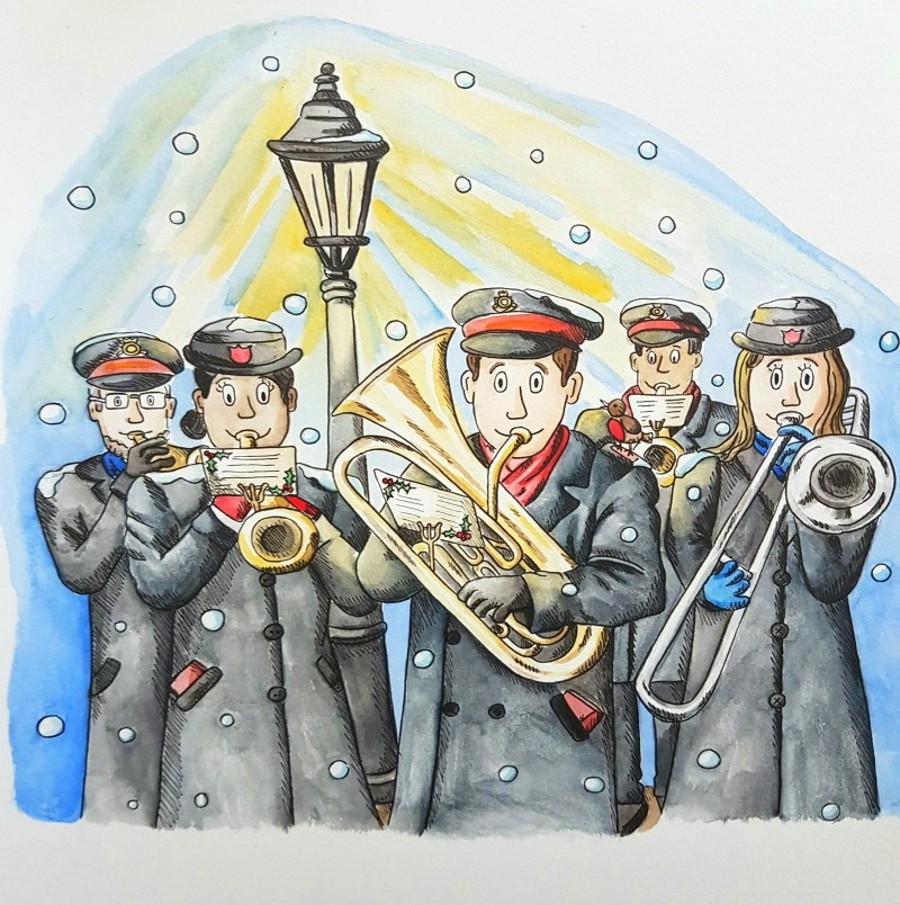How Our Churches Can Help Homeless People

Now here’s a question. If we have a country of around 250,000 homeless people (that includes people living in bed-and-breakfasts, rough sleepers, those staying in Travelodge and ‘sofa-surfers’), what are the churches doing?
Also read our post on helping dogs that live with homeless people.
There’s no doubt that small local churches do try to help. But we have the official (Church of England) that owns billions of pounds worth of properties and an income of around £900 million a year.
And the Catholic church (the other main religion) is one of the richest organisations in the world. Hello? Jesus Christ? Simple living?
Churches are often at the heart of neighbourhoods. And whether residents are religious or not, churches remain one of the few places where often you can find help, where there is no ulterior motive (to buy something, to vote for someone etc).
Local faith groups have both people power and compassion, to help prevent homelessness in towns and cities, something that most councils have failed at.
Understanding Root Causes of Homelessness
Unlike politicians or the media, most church leaders are compassionate towards the main causes of homelessness, and know that often it’s not a cause of ‘roll up your sleeves, get on your bike and find work’. Most homelessness in modern society is due to:
- Economic hardship: Lost jobs, low wages, and rising bills can leave people unable to pay rent or mortgage.
- Mental health challenges: Depression, anxiety, or addiction can push someone out of stable housing, if support isn’t available.
- Lack of affordable housing: With rents outpacing incomes, even working families can find themselves at risk.
- Relationship breakdowns: Family disputes or domestic abuse force people to leave home with nowhere to turn.
Providing Emergency Accommodation
Not all, but many churches open their halls on cold nights, to offer emergency shelter. They work with local councils and charities to make sure people have a safe place to sleep, while they get back on their feet. Many train volunteers to support and welcome guests.
Running Food Banks and Community Meals
When money’s tight, food becomes a worry. Churches can run food banks or weekly meals for people struggling to stretch incomes. These small acts give families breathing space while working towards longer-term stability.
Churches can collection food donations from parishioners and local shops (also reduces food waste). They can then organise meal nights in community halls.
Distributing Clothing and Hygiene Essentials
Clean clothes and basic hygiene can feel out of reach, during hard times. Churches often work with donors to run drives collecting coats, socks, toiletries, and more.
Note clean clothes usually only ‘works’ if homeless people also have access to regular showers and laundries.
Churches Investing in Homeless People
Green Pastures is a unique social enterprise run by Christians, that works a bit like an ethical investing firm. The difference here is that your savings are used for them to buy up properties, which are then used to house homeless people, and transform lives.
You eventually receive your money back (with interest). And you get to completely alter the course of someone’s life in a positive way. As well as a home, each homeless person receives ‘wraparound support’, to get their life back to one of stability and comfort.
You can invest from £1000 for one or more years, choosing to earn interest of up to 5% each year. Every £30,000 or so helps them to house someone in need. Investments are unsecured (so not secured by say a property).
There’s a calculator online, to estimate how much you would earn, and how you could help. For instance, if you invested £30,000 over 3 years at an interest rate of 3%, you would earn £2,700. While also helping to provide a home for at least one homeless person.
A big company that invested £500,000 over 1 year, would earn £15,000 in interest, and provide homes for 17 homeless people. Longer-term investments with lower interest rates, allow them to help more homeless people.
So far, Green Pastures has managed to buy up property and give homes to almost 2000 people nationwide (UK) and already has almost 2000 investors saving a collectively £50 million or so.
Two similar organisations are:
Hope into Action lets investors retain ownership of the house, who leases it for 5 years. This organisation then finds tenants to live in the house, and provides support and maintenance. This offers a 2% annual return on your investment, a method that has proven successful with tenants, churches and investors.
Church Homeless Charity is a tiny organisation that receives no funding from the Church of England (despite it having an income of over £900 million plus billions worth of property). So it asks churches to assist personal givers, to donate towards grants for homeless people.
Examples are new clothes for interviews, passports (so people can pass ID checks for jobs & homes), and furnishing/deposits on new homes.
And don’t believe all you read in the papers. This is a Christian charity that will help anyone, no matter their gender, sexuality, race or religion. Or for whatever reason they became homeless.
More Ways Churches Help Homeless People

The Salvation Army is our main ‘Christian charity’ that helps homeless people. As well as donating unwanted clothing in their charity banks, you can bank with Reliance Bank Ltd (which gives a lot of its profits to the Sally Army), as does SAGIC Insurance.
Donations also help this organisation to provide Nap Pads (emergency accommodation in small pods that are light & airy with a window, secure front door, bed, toilet, hand basin and storage area, plus connection to heat, running water and phone charging).
They even have sensors (similar to that preventing crib death) to alert people, if someone stops breathing.
Churches Don’t Open Doors Abroad
A recent experiment in the Pacific Northwest (which has similar cold rainy weather to us in England) asked local churches to open their doors to homeless people, during a very cold snap of weather.
The US states of Washington, Oregon and Idaho (along with British Columbia in Canada) were covered in snow, with freezing temperatures and high winds.
So the mayor of Washington asked 227 places of worship to consider temporarily housing homeless people, to stop them getting hypothermia. She expected that as they all worshipped Jesus Christ, they would say yes. Just four did.
Of course, they all made excuses. They were fearful of property damage or they had no liability insurance, or they feared local people would be upset. Despite reassurances from volunteers that each church would have 20 to 25 (vetted) homeless people, who would have people to keep watch.
In 2017, one of those millionaire mega-pastors (that travel on private planes while preaching the simple living of Jesus), refused to open its huge church during a major hurricane. Again it was due to ‘safety issues’.
How to Help Homeless People in England
There are presently around 250,000 homeless people in England (this includes rough sleepers, sofa-surfers and people living in temporary bed-and-breakfast accommodation).
Homeless people can claim benefits (usually Universal Credit), giving the address of a family member or friend, or a local hostel or job centre. Having this income helps pay for food (and pet food), interview clothes, and accommodation deposits.
People without a bank account can use the government’s Payment Exception Service to collect benefits from a local post office or PayPoint outlet.
If you see someone sleeping rough, send a report to StreetLink, whose local outreach teams visit rough sleepers at night, to alert them of support to find benefits and accommodation (if the person is under 18, call 999).
10 Ways Churches Strengthen Communities
Local churches have always played a strong role in building better neighbourhoods. Their impact often reaches far beyond Sunday services. Churches bring people together, offer practical help, and add hope where it’s needed most. Here’s how local churches support and uplift the communities around them.
Providing Food and Basic Needs
Many churches run food banks or help distribute groceries to families who are struggling. These programmes often include essentials like fresh fruit, tinned goods, toiletries, and clothing. Families facing hard times know they can count on their local church for support, turning worry into relief.
Running Youth and Children’s Activities
Churches often provide a safe place for children and teenagers. Sports clubs, homework help, music groups, and after-school programmes keep young people busy and supported. These groups build friendships and offer encouragement, especially for those who might not find it elsewhere.
Supporting Mental Health and Wellbeing
Trained volunteers and ministers offer someone to talk to when life feels tough. Churches host support groups for grief, addiction recovery, and stress. Many partner with mental health professionals or charities to help people access the care they need, showing every person matters.
Hosting Community Events and Social Gatherings
From summer fairs to Christmas markets, churches invite everyone to join in. These events connect neighbours, create fun memories, and strengthen the bonds that hold a town or village together. They help keep loneliness at bay and make newcomers feel welcome.
Offering Practical Help for the Elderly
Many seniors rely on their church for lifts to appointments, shopping runs, or a friendly visit at home. Churches often organise coffee mornings, meals, or day trips for older adults. This practical care makes ageing less lonely and keeps people independent for longer.
Promoting Volunteering and Community Service
Churches encourage their members to get involved in the wider community. This often means helping local schools, caring for green spaces, or joining clean-up days. By working together, they show what can be achieved by giving time and effort for others.
Providing Emergency and Crisis Support
When disaster strikes, churches respond fast. Whether it’s a house fire, flood, or loss of income, many churches distribute emergency funds or shelter. They partner with local councils or charities to meet urgent needs and help families recover.
Championing Education and Life Skills
Some churches run free classes in reading, English, digital skills, or financial advice. These programmes break down barriers and help people gain confidence. Parents, new arrivals, and jobseekers all benefit from practical learning right in their own neighbourhood.
Sharing Faith and Spiritual Guidance
Many turn to the church for comfort, prayer, or guidance in hard times. Churches offer a calm space for reflection and support, regardless of personal beliefs. Even those not attending regularly can find peace talking with a minister or joining a quiet moment of worship.
Standing Up for Justice and Community Needs
Churches often speak up for the most vulnerable, raising awareness of poverty, homelessness, or injustice. They organise petitions, host forums, and work with other groups to make local leaders pay attention. Their presence helps shine a light where it’s needed most.






